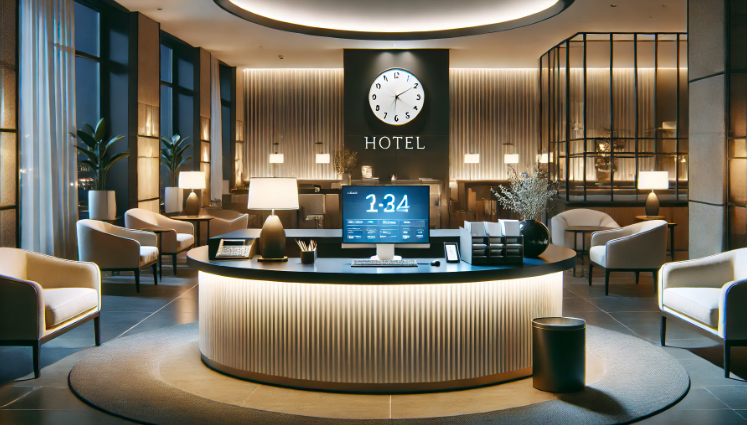In the hospitality industry, the smooth operation of a hotel depends on efficient management practices, one of the most critical being the night audit process. This essential procedure acts as the backbone of a hotel’s financial and operational efficiency. It ensures that the day-to-day transactions are accurately recorded, discrepancies are addressed, and the hotel’s records are ready for the next day. But what exactly is the night audit process, and why is it so important? In this post, we’ll delve deep into the mechanics of the night audit process, its significance, and the steps involved.
What is the Night Audit Process?
The night audit process is a systematic review of all financial and operational activities conducted during a hotel’s business day. It typically takes place during the night shift, hence the name. This process reconciles guest accounts, validates transactions, and prepares management reports that are crucial for decision-making.
The primary objective of the night audit process is to ensure that all financial records are accurate and that no discrepancies exist between the transactions recorded in the hotel’s property management system (PMS) and the actual financial activity.
Why is the Night Audit Process Important?
Financial Accuracy
The night audit process ensures that the hotel’s financial transactions, such as room charges, food and beverage sales, and other services, are accurately recorded. This accuracy is vital for maintaining the trust of guests and stakeholders.Operational Efficiency
By reviewing operational activities, the night audit process identifies discrepancies or errors that could impact the guest experience or the hotel’s financial health.Daily Reporting
The process generates key reports, such as occupancy rates, revenue summaries, and outstanding balances. These reports guide the hotel’s management team in strategic planning and daily operations.Compliance:
For tax and legal purposes, maintaining accurate financial records is a requirement. The night audit process ensures that all records comply with financial regulations.
The Steps of the Night Audit Process
The night audit process involves several key steps that cover financial reconciliation, reporting, and system updates. Here’s a detailed breakdown:
End-of-Day Closure
- The first step in the night audit process is closing the business day in the PMS. This ensures that all transactions for the day are recorded and no further entries can be made.
- This step sets a clear cutoff point for transactions and avoids any confusion.
Reconciliation of Financial Transactions
- All financial transactions, including room charges, restaurant bills, and other services, are cross-checked against receipts and guest folios.
- The night auditor verifies that all payments received (cash, card, or other methods) match the totals in the PMS.
Checking Room Status
- The auditor reviews the status of all rooms (e.g., occupied, vacant, under maintenance) and ensures that the occupancy reports align with the actual room statuses.
- Discrepancies, such as unrecorded check-ins or check-outs, are flagged for resolution.
Generating Reports
- The night audit process includes generating key reports such as:
- Daily revenue reports
- Occupancy and ADR (Average Daily Rate) summaries
- Outstanding balance reports
- Credit card reconciliation reports
- These reports are shared with the management team to provide insights into the hotel’s performance.
Addressing Discrepancies
- Any errors or inconsistencies discovered during the night audit process are addressed promptly. For example, if a guest’s folio shows an unpaid balance, the front desk is informed to rectify it the next day.
System Updates
- The final step involves updating the PMS to reflect the new business day. This ensures that all systems are ready for the next day’s operations.
Tools and Technologies for the Night Audit Process
The traditional manual approach to the night audit process has been largely replaced by advanced technology. Modern PMS systems like Opera, Cloudbeds, and RoomRaccoon have automated many aspects of the night audit process, reducing errors and saving time.
Key Features of Modern PMS for Night Audits:
- Automated Reconciliation: Automatically matches transactions with records, minimizing human errors.
- Customizable Reports: Allows auditors to generate tailored reports based on the hotel’s specific needs.
- Real-Time Data Access: Provides instant access to transaction and occupancy data.
- User-Friendly Dashboards: Simplifies the process with intuitive interfaces.
Challenges in the Night Audit Process
Despite the advancements in technology, the night audit process can still present challenges:
Discrepancies in Transactions: Errors in billing or missed entries can create discrepancies, requiring additional time to resolve.
Training and Skill Requirements: Night auditors must be well-trained in financial management and familiar with the PMS.
Manual Intervention: Even with automation, certain aspects of the process require manual oversight, such as handling disputes or technical issues.
Best Practices for a Smooth Night Audit Process
Train Your Team: Ensure that night auditors receive comprehensive training on the PMS and the night audit process.
Leverage Technology: Invest in a modern PMS with robust audit features to simplify and automate the process.
Implement Clear Policies: Establish clear policies for handling discrepancies and guest disputes to ensure consistency.
Regular System Updates: Keep your PMS and other systems up to date to prevent technical glitches.
Maintain a Checklist: Use a detailed checklist to ensure that all steps of the night audit process are completed without errors.
Real-World Example of the Night Audit Process
Consider a mid-size hotel with 150 rooms. During the night audit process, the night auditor reconciles daily transactions, reviews occupancy reports, and checks for unpaid balances.
The PMS automatically generates a revenue summary, highlighting the day’s earnings from room bookings, dining, and spa services. By the time the audit is complete, the hotel has accurate financial records and actionable insights for the next day.
The night audit process is the cornerstone of operational efficiency in the hospitality industry. It ensures financial accuracy, provides critical performance insights, and prepares the hotel for the next business day.
By leveraging modern technology and adhering to best practices, hotels can streamline the night audit process and maintain a high standard of service.
Whether you’re managing a small boutique hotel or a large chain, mastering the night audit process is key to success in the competitive world of hospitality.


